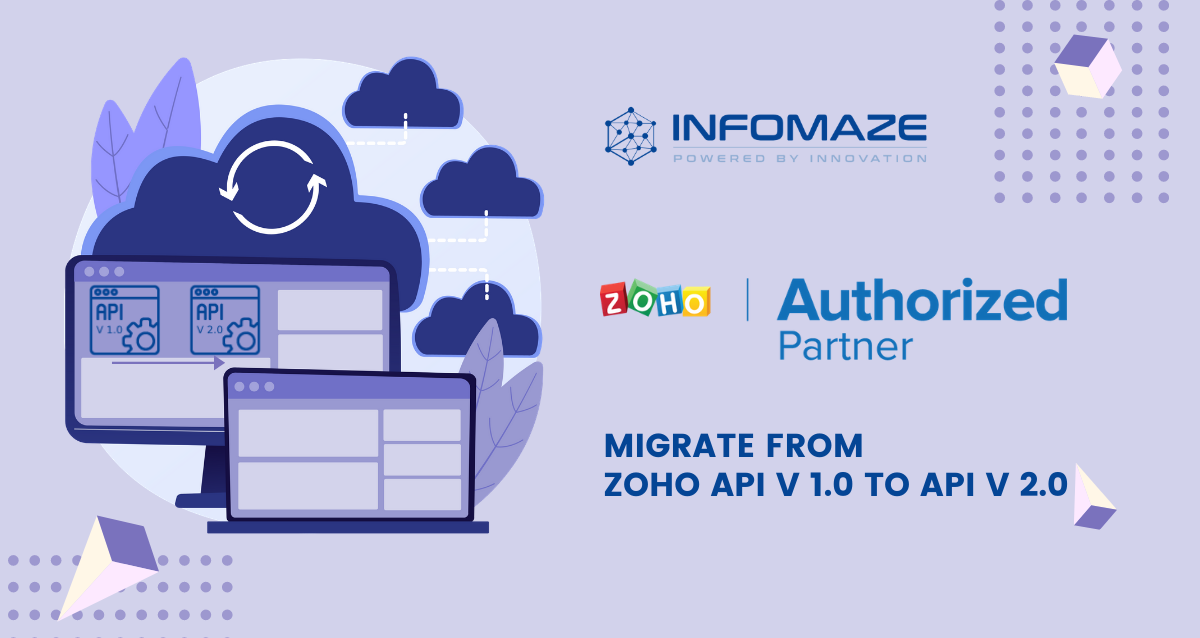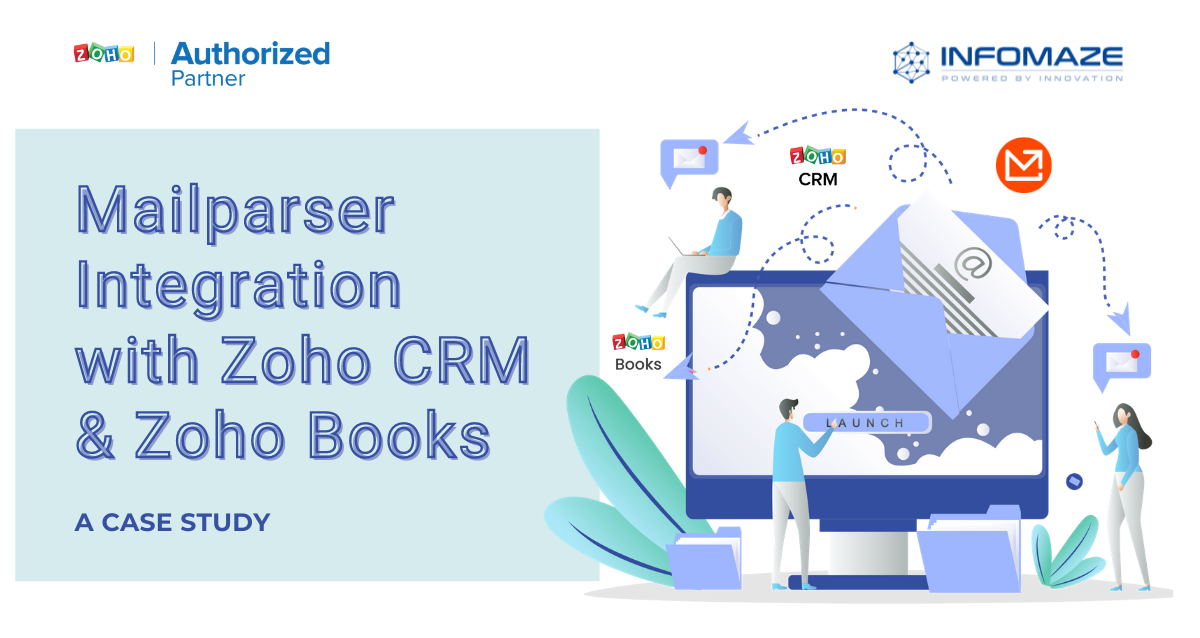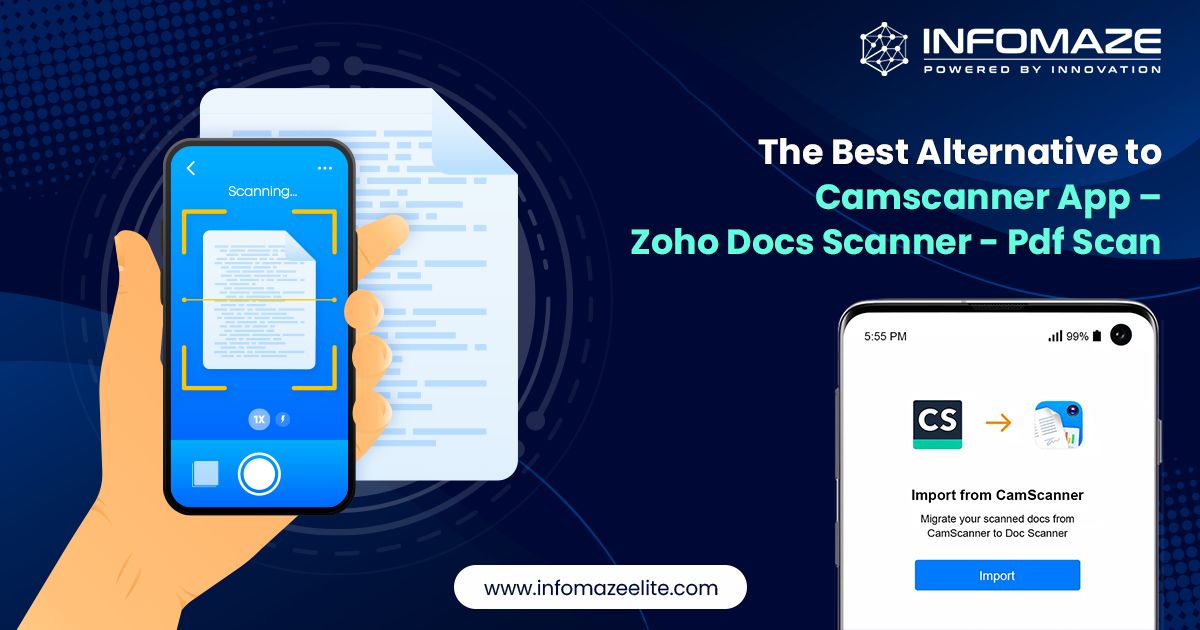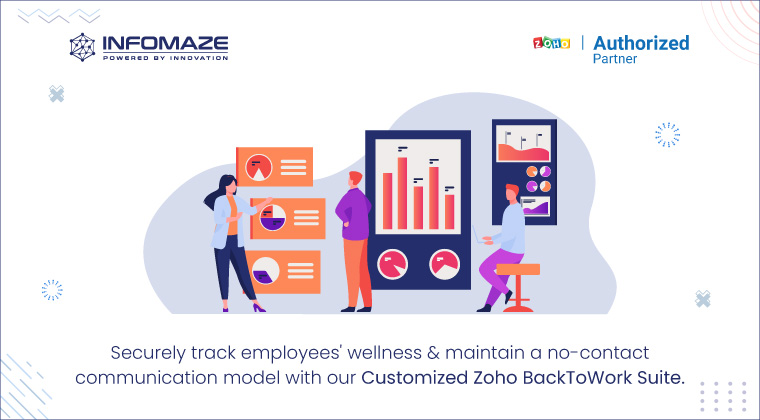Zoho Announces Mandatory Migration to Projects API V3 – What It Means for Your Business
Zoho has officially announced a major update that every organization using Zoho Projects API must urgently pay attention to: All users are required to migrate to Zoho Projects API V3 by December 31, 2025.
After this date, older API versions will be deprecated, leading to potential disruptions in workflows, integrations, and automated processes.
This announcement mirrors the earlier transitions seen in Zoho CRM and other Zoho platforms, where older APIs were retired to make room for faster, more secure, and more scalable versions.
And like every Zoho projects API update, this one comes with both opportunities and consequences if ignored.
So, what does this mean for your business? And how should enterprises prepare for a smooth transition? Let’s break it down because if you are using Zoho Projects, this is an important update your business cannot afford to ignore.
What Exactly Is Changing With Zoho Projects API V3?
In simple terms, Zoho is overhauling the underlying foundation that allows developers and systems to interact programmatically with Zoho Projects.
API V3 introduces:
- Faster response times
- Enhanced stability
- Stricter security standards
- Improved endpoint structures
- Better data handling and richer capabilities
- Consistency with broader Zoho ecosystem standards
In short: This Zoho projects API update is a modernization upgrade that ensures the platform can scale with increasing demands of enterprises, automation, and integrations.
But this also means that older API versions (V1 and V2) will no longer function after the deadline.
Why Is Zoho Deprecating the Older APIs?
There are three clear reasons behind Zoho’s decision:
Security & Compliance Requirements
Legacy APIs are more prone to vulnerabilities, data leaks, and compliance issues. Enterprises now demand advanced encryption, better OAuth flows and auditability features V3 aligns with.
Performance Bottlenecks
Older APIs were built when automation and integration demands were far lower. Today, businesses rely on real-time syncing, multi-system orchestration and event-driven workflows, capabilities that V3 can handle more efficiently.
Cross-Platform Standardization
Zoho is gradually unifying API structures across all its products. With CRM, Books, Inventory, Desk and other platforms already upgraded, Projects now follows the same modern framework.
What Happens If You Don’t Migrate Before December 31, 2025?
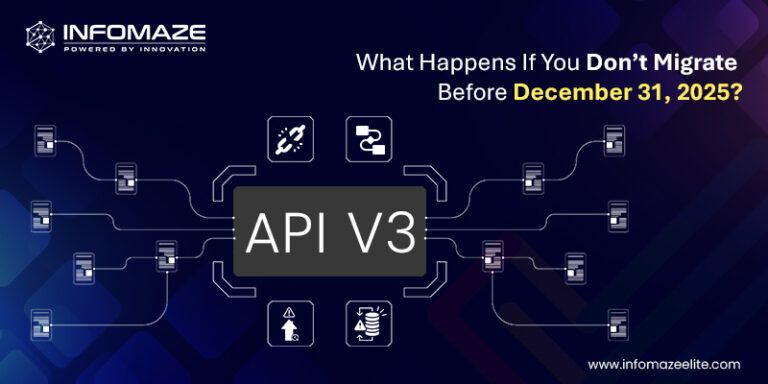
The consequences can be significant and especially for businesses deeply dependent on Zoho Projects for project management, billing, workflows, and client delivery.
Here’s what’s at risk:
Integrations Will Stop Functioning
Any integration built using older API versions (custom apps, automations, mobile apps, internal dashboards) will stop functioning. This can result in:
- Task creation automation
- Project updates sync
- Resource allocation workflows
- Time tracking feeds
- Third-party tool connections
For businesses running hundreds of automated triggers daily, this could cause operational chaos.
Workflows & Custom Functions May Fail
Custom functions in Zoho Flow, Creator, Deluge scripts or internal project management logic may rely on outdated endpoints. When those endpoints vanish, anything tied to them collapses.
This leads to:
- Failed project updates
- Broken communication loops
- Inaccurate reporting
- Stalled ticketing or task assignments
Client Deliverables May Be Impacted
If your project timelines, notifications, dependencies, and progress reporting rely on APIs any disruption affects clients directly.
Imagine sending project updates manually again, mismatched data between your internal systems and Zoho or overnight automation failures right before a client deadline.
Data Consistency Issues Across Systems
If some systems run on the new Zoho projects automation and some on the old, inconsistencies arise:
- Duplicated tasks
- Incorrect time entries
- Mismatched resource allocation
- Data loss during sync attempts
This can severely affect analytics, billing, forecasting, and compliance.
Increased IT & Migration Costs Later
The closer businesses get to the deadline, the more pressure falls on IT teams. And rushed migrations always cost more, in effort, errors, and dependency management. Waiting until the last minute is never the right choice for enterprise systems.
Why Should Businesses Migrate Now, Not Later?
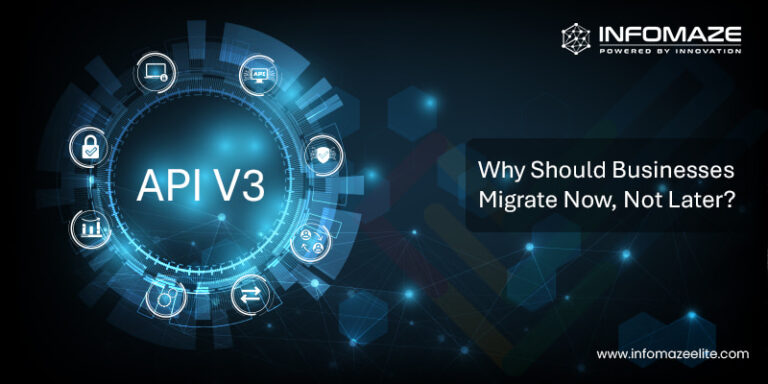
Stability and Performance Advantages
API V3 is designed to handle high workloads, enterprise-level integrations, and large datasets, making your system faster and more reliable.
Better Security and Future Readiness
Compliance with modern security standards protects businesses from data risks and aligns with global benchmarks.
Access to Latest Features
Zoho continues to build new capabilities only on V3. Remaining on older versions means missing out on:
- Advanced task management
- New reporting flexibility
- Better automation endpoints
- Smarter time-tracking features
Smoother Transition With Ample Time for Testing
Zoho API migration services is not a copy-paste exercise. It requires:
- Code review
- Endpoint updates
- Authentication adjustments
- Testing in sandbox
- Fixing broken workflows
- Retrofitting custom functions
How Enterprises Should Approach This API Migration Services
Identify All Existing Integrations
The first and most essential step for Zoho developers is to perform a complete discovery of every integration that touches Zoho Projects.
This includes reviewing all internal applications, middleware services, synchronization jobs, data pipelines, creator-based utilities, server scripts and any third-party applications that consume or push project-related data.
Audit All Deluge Scripts and Custom Functions
Most organizations have numerous Deluge scripts distributed across Zoho Creator, CRM, Desk, Flow and internal workflows. These scripts often contain API calls buried deep within logic blocks, conditional rules, or scheduled functions.
An enterprise-grade audit must identify every reference to older endpoints, validate the script logic, check for deprecated parameters, review retry and error-handling patterns, and ensure compatibility with the new V3 structure.
Map Old Endpoints to New V3 Endpoints
API V3 changes how requests and responses are structured, how parameters are interpreted, and how error codes are returned.
Enterprises must carefully map every existing endpoint to its V3 equivalent, analyze differences in request schemas, update payload expectations and realign workflows that depend on specific response formats.
Update Authentication Models
API V3 strengthens security protocols with enhanced OAuth standards, stricter scope-based permissions, and improved token lifecycle handling.
Enterprises need to ensure that all applications using older authentication methods migrate to compliant OAuth models with updated scopes and secure token management practices.
Test Thoroughly in a Sandbox Environment
Enterprises should treat this migration like a full-scale platform upgrade. All integrations must be tested extensively in a sandbox or dedicated staging environment before deployment.
This includes validating data flow across systems, reviewing logs, stress-testing high-traffic endpoints, and ensuring reporting systems receive accurate information.
Deploy in Phases to Protect Business Continuity
A phased rollout is essential for minimizing risk in enterprise environments. Core, mission-critical systems should be migrated and stabilized first, followed by secondary applications and peripheral scripts.
Deploying in controlled stages gives teams the ability to monitor real-time performance, trace unexpected issues and roll back safely if needed.
A Zoho Projects API migration can be simple for smaller teams, but at the enterprise level, where systems are interconnected and workflows are complex, you need a certified Zoho partner who truly understands your architecture, dependencies and challenges to ensure a seamless and secure transition.
How Infomaze Can Support Your Migration As a Certified Zoho Partner?
As a Zoho-certified development and implementation partner, we have extensive experience with Zoho API integration services across multiple Zoho products, including CRM, Books, Inventory, Creator and now Zoho Projects.
We can help enterprises with:
- Complete API audits
- Mapping and refactoring outdated endpoints
- Updating Deluge scripts, integrations, and custom functions
- Rebuilding workflows to leverage new V3 capabilities
- Testing and phased deployment
- Ensuring zero downtime during transition
Our expertise in Zoho projects integration is especially valuable for businesses with complex, multi-platform ecosystems where Zoho interacts with ERP, accounting, CRM, HRMS, or custom-built enterprise apps.
Migrating early gives you peace of mind but migrating with the right Zoho authorized partner gives you reliability.
Final Thoughts
Zoho’s December 31, 2025 deadline for migrating to Zoho Projects API V3 is not just another update, it is a critical system change that will impact operations, workflows, and integrations across organizations.
Ignoring the migration can lead to sudden breakdowns, productivity losses, and client-facing issues. Taking action now ensures smoother operations, stronger security, and access to the latest improvements from Zoho.
If you want expert-led support, enterprise-grade planning, and a seamless transition, Infomaze is here to help, ensuring your systems stay reliable, future-ready and scalable.
Categories
- AI/ML (6)
- Application Migration (8)
- BI (7)
- Case Study (37)
- CRM (8)
- Dot Net (8)
- Informational Blog (82)
- IT Help Desk (8)
- Mern Stack (1)
- Microsoft 365 (2)
- Mobile Application (9)
- Offshore Development (10)
- Outsourcing Services (1)
- PHP (11)
- PowerBI (7)
- QuickBooks (6)
- ReactJS (4)
- SEO (14)
- SharePoint (3)
- Web Application (10)
- Xero (1)
- Zoho (16)
- Zoho Case Study (43)
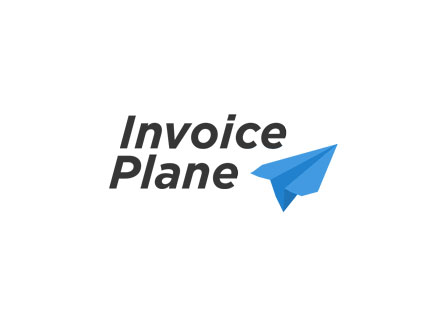
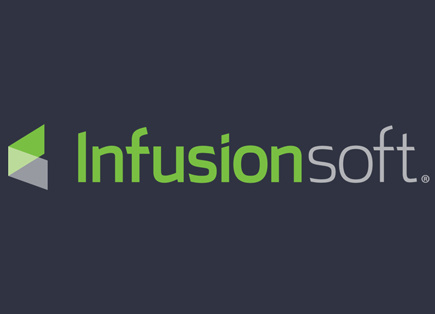

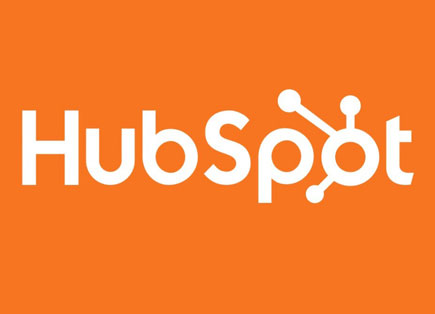
Disclaimer: All rights belong to the owner. No Copyright or Trademark Infringement Intended.


